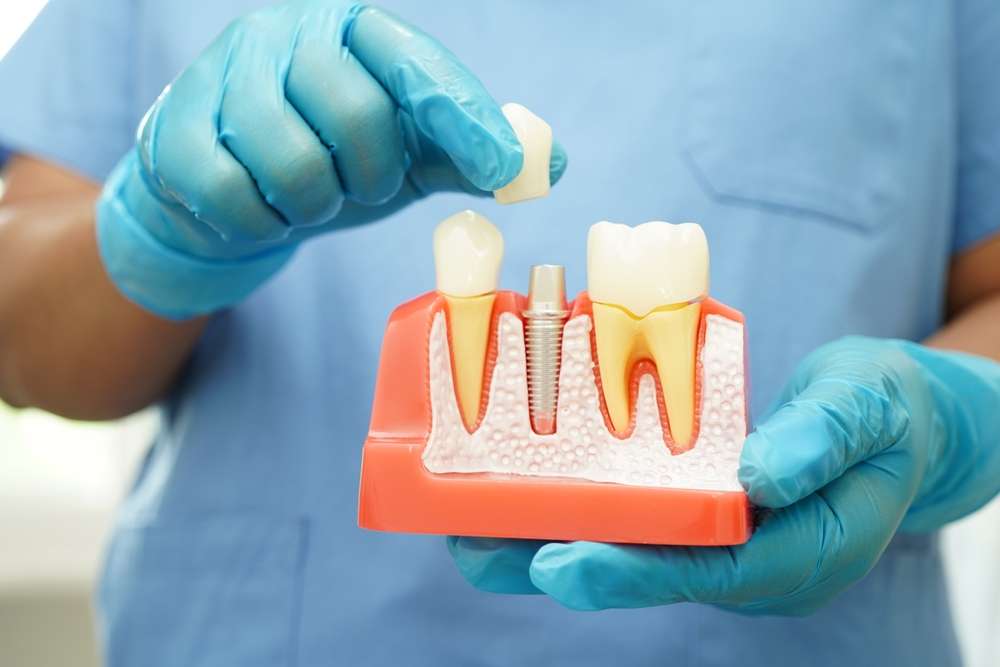Dental implants for seniors
Dental implants have become an increasingly popular solution for seniors seeking to restore their smiles and improve their oral health. As we age, tooth loss becomes more common due to factors like decay, gum disease, or injury. Dental implants offer a long-lasting and natural-looking alternative to traditional dentures or bridges, providing seniors with improved functionality and confidence in their daily lives.

What are dental implants and how do they work?
Dental implants are artificial tooth roots surgically implanted into the jawbone to support replacement teeth. They consist of three main components: the implant (a titanium post), an abutment (a connector), and a crown (the visible part that looks like a natural tooth). The implant fuses with the jawbone through a process called osseointegration, creating a stable foundation for the replacement tooth. This integration allows dental implants to function much like natural teeth, providing a secure and comfortable solution for seniors with missing teeth.
Why are dental implants particularly beneficial for seniors?
Dental implants offer several advantages for older adults:
-
Improved oral function: Implants allow seniors to eat, speak, and smile with confidence, much like they would with natural teeth.
-
Bone preservation: Unlike dentures, implants stimulate the jawbone, preventing bone loss that often occurs after tooth loss.
-
Long-lasting solution: With proper care, dental implants can last a lifetime, making them a durable option for seniors.
-
Enhanced appearance: Implants look and feel like natural teeth, helping seniors maintain a youthful appearance.
-
Better quality of life: By restoring full dental function, implants can significantly improve a senior’s overall well-being and self-esteem.
Are dental implants suitable for all seniors?
While dental implants can be an excellent option for many seniors, not everyone is an ideal candidate. Factors that may affect suitability include:
-
Overall health: Seniors should be in good general health to undergo the implant procedure and healing process.
-
Bone density: Adequate jawbone density is crucial for successful implant placement. Some seniors may require bone grafting before implant surgery.
-
Gum health: Healthy gums are essential for implant success. Seniors with severe gum disease may need treatment before considering implants.
-
Smoking habits: Smoking can negatively impact healing and implant success rates. Seniors who smoke may be advised to quit before undergoing the procedure.
-
Medications: Certain medications, such as those affecting bone metabolism, may influence implant success.
A thorough evaluation by a dental professional is necessary to determine if dental implants are appropriate for an individual senior patient.
What is the dental implant process like for seniors?
The dental implant process for seniors typically involves several stages:
-
Initial consultation: A dentist or oral surgeon evaluates the patient’s oral health, medical history, and suitability for implants.
-
Treatment planning: X-rays and 3D scans are taken to plan the implant placement precisely.
-
Implant surgery: The titanium implant is surgically placed into the jawbone under local anesthesia or sedation.
-
Healing period: The implant fuses with the bone over several months (typically 3-6 months).
-
Abutment placement: Once healed, the abutment is attached to the implant.
-
Crown placement: Finally, the custom-made crown is secured to the abutment, completing the restoration.
For seniors, the process may take longer due to slower healing rates. However, many older adults find the results well worth the wait.
What are the costs associated with dental implants for seniors?
Dental implants can be a significant investment for seniors. The cost varies depending on factors such as the number of implants needed, the complexity of the case, and geographical location. On average, a single dental implant in the United States can cost between $3,000 to $4,500, including the implant, abutment, and crown.
| Provider Type | Estimated Cost Range (per implant) | Additional Considerations |
|---|---|---|
| General Dentist | $3,000 - $4,500 | May refer complex cases to specialists |
| Oral Surgeon | $4,000 - $5,500 | Experienced in complex cases |
| Prosthodontist | $4,500 - $6,000 | Specializes in tooth replacement and restoration |
Prices, rates, or cost estimates mentioned in this article are based on the latest available information but may change over time. Independent research is advised before making financial decisions.
It’s important to note that dental insurance often doesn’t cover the full cost of implants, considering them a cosmetic procedure. However, some plans may cover a portion of the treatment. Seniors should explore financing options, such as payment plans or healthcare credit cards, to make the procedure more affordable.
How can seniors find reputable dental implant providers in their area?
To find qualified dental implant providers locally, seniors can:
-
Ask for recommendations from their regular dentist or healthcare provider.
-
Consult with friends or family members who have had dental implants.
-
Check with dental schools or university clinics, which may offer more affordable options.
-
Use online resources like the American Academy of Implant Dentistry’s “Find an Implant Dentist” tool.
-
Read online reviews and testimonials, but be cautious of overly positive or negative reviews.
-
Schedule consultations with multiple providers to compare treatment plans and costs.
When choosing a provider, seniors should consider the dentist’s experience, credentials, and success rates with implant procedures. It’s also crucial to feel comfortable with the provider and their team, as the implant process requires multiple visits and ongoing care.
In conclusion, dental implants offer seniors a reliable and effective solution for tooth replacement, improving both oral health and quality of life. While the process requires careful consideration and investment, many seniors find that the benefits of dental implants far outweigh the costs, providing them with renewed confidence and functionality in their golden years.
This article is for informational purposes only and should not be considered medical advice. Please consult a qualified healthcare professional for personalized guidance and treatment.




